Hi Susun,
Throughout my adult life I have had waxing and waning bladder problems. Right now, and perhaps because the weather is very cold, I am going through a difficult time with having to empty my bladder frequently and often during the night. Many years ago I tried corn silk with some degree of effectiveness. I have been unable to find it in my local health food stores and am concerned about purchasing it from unknown sources since corn is often a genetically modified (GM) food. Do you have any recommended herbs for bladder health? Many thanks.
Karen Joy’s response (apprentice to Susun Weed):
For bladder health we must keep bacteria from entering the urethra. From the inside out we must keep our system working with lots of fluids.
If faced with a bladder infection there are a few (at least) different herbs that can help. The following are excerpted from Susun’s New Menopausal Years the Wise Woman Way:
- Cranberries (Vaccinium macrocarpon) contain substances that kill bacteria and make your bladder wall so slippery that any escaping bacteria can’t latch on and thrive there. Unsweetened cranberry juice (or concentrate) is the most effective form. (The sugar or corn syrup in cranberry cocktail-type juices and cran-apple juices can feed the infection.) Drink freely, at least a glass a day, up to a quart/liter a day for acute infections unless your urine’s pH is already low.
- An overgrowth of vaginal yeast may be irritating your bladder or urethra. Eat one cup of plain yogurt 4-5 times a week.
- Another nourishing option is Pelvic Floor Exercises, also know as Kegels.
If the none of the above work, some stronger remedies are:
- Uva Ursi (Arctostaphylos uva ursi) is an old favorite for strengthening the bladder and ending chronic silent bladder infections. I prefer a hot water infusion of the dried leaves, but know women who have successfully used cold water infusions, tinctures, even vinegars. A dose is 1 cup/125 ml of infusion; 10-30 drops of tincture; 1 tablespoonful/15 ml of vinegar; 3–6 times a day initially, then 1–3 times a day for 7–10 days. In very chronic cases, eliminate all forms of sugar (even fresh fruit, fruit juice, and honey) for a month as well.
- Yarrow is a urinary disinfectant with a powerful antibacterial action and an astringent effect. A small cup of the infusion, once or twice a day for 7–10 days, tones up weak, lax bladder tissues. Combines well with uva ursi. Results may be felt within hours.
- In my experience, Echinacea purpurea and E. augustifolia are as effective as antibiotics in clearing bladder infections and do not contribute to vaginal yeast. A dose is 1 drop echinacea tincture per 2 pounds/1 kilo body weight. (For 150 pound/70 kilo person, use 75 drops or three dropperfuls.) In acute cases, I give the dose every 2 hours. As the infection clears, I lengthen the amount of time between doses until I’m down to 1–2 doses a day, which I continue for another 2–10 weeks.
Susun also warns that “Calcium supplements increase bacterial adherence to the bladder wall, increasing bladder infections.”
Some other things that may exacerbate bladder troubles are:
• Women who wash their vulva with soap and water are four times more likely to get vaginal and bladder infections. Douches, bubblebaths, tampons, nylon underwear, and pantyhose may also irritate the urethra and contribute to bladder infections.
• Known bladder irritants include: alcohol, black tea, coffee, sodas, citrus juices, chocolate, cayenne, and hot peppers. (An herbal tincture in an alcohol base won’t irritate the bladder if you take it diluted in a glass of water or a cup of herb tea.)
- Urinating after love play flushes out bacteria and cuts down on UTIs. Urinating before love play increases your risk of a bladder infection.
- Bacteria enter the bladder in three primary ways: when feces are spread to the bladder opening (such as wiping from back to front after toileting), when the tube leading to the bladder is irritated or bruised (as from use of a diaphragm, pelvic surgery, or prolonged/vigorous vaginal penetration), or when there is an in-dwelling catheter.
- The thinning and shrinking of reproductive and bladder tissues that may occur in the post-menopausal years contributes to bladder infections in older women, as does lessening of vaginal acidity.
When we have a condition that seems to repeat year after year, it is possible to nearly become accustomed to its familiarity and expect it. Know that you do not need to continue to have these troubles. It is wonderful you will nourish yourself well!!
Love and blessings, Karen Joy (apprentice to Susun Weed)
photos: Wise Woman Spiral © iStockphoto.com / Chuck Spidell | Julie © 2007 Catalina Viejo Lopez de Roda



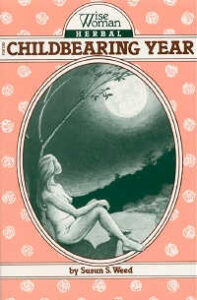
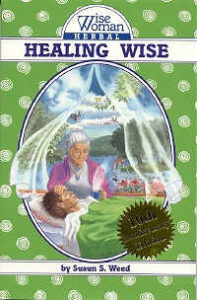
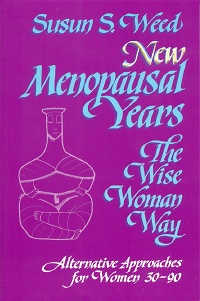
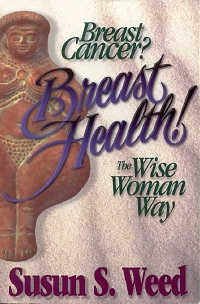

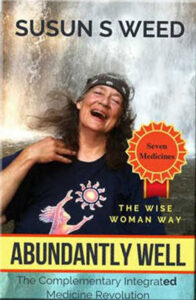



0 Comments